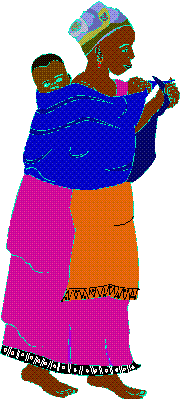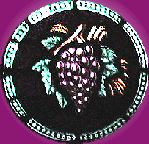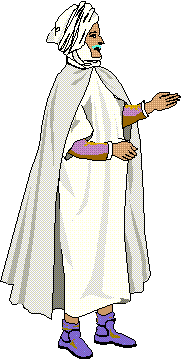 Week of Novenas
Week of Novenas 
 Week of Novenas
Week of Novenas 
for Justice and Peace
Our Lady of
the Precious
Blood and
Charles de Foucauld
Foucauld
General Intention:
The reconciliation of
persons and peoples
Work of Justice and Peace:
Make injustice visible -- witness, remember, teach,
proclaim, tell. Light candles, do not curse the darkness.
Saint's Prayer
Charles Foucauld, you heard a call from God to live with those who are rejected and marginalized. We are grateful for your heroic witness and we ask your intercession now on behalf of all who are poor and all those who in evangelical witness live in solidarity with and among them as visible signs of the ministry of reconciliation which God has committed to us through Christ Jesus. May many more people come to understand and live the solidarity which you modeled with your life and your death. Amen.
Return to Novena Home Page .... Home Index
Daily justice and peace meditations on the lectionary readings, July 8-12
His lifeless body was taken from the Cross and laid in her blessed arms. How the tears must
have flowed, as she cradled Him in her arms, He who once had been a little baby, bouncing on
her lap, a young man who followed in Joseph's footsteps as a carpenter and who taught in the
Temple confounding the wise, a fearless prophet who healed and taught and brought hope. How
His life must have passed before her eyes, filled with tears, as they fell from her eyes, mingling
with His most precious Blood. "A sword shall also pierce your heart."
Her blood had been his first nourishment, as he grew within her, conceived by the power of the
Holy Spirit. Present at that first Eucharist, she received the Cup from His hands -- did she
understand even then what was to come? "She kept all these things and pondered them in her
heart."
"For in Christ all the fullness was pleased to dwell, and through him to reconcile all things for
him, making peace by the blood of his cross through him. . . (Colossians 1:19-20a).
"And all this is from God, who has reconciled us to himself through Christ and given us the
ministry of reconciliation, namely, God was reconciling the world to himself in Christ, not
counting their trespasses against them and entrusting to us the message of reconciliation." (2
Corinthians 5:18-19
"In Christ we have redemption by his blood, the forgiveness of transgressions, in accord
with the riches of his grace that he lavished upon us." Ephesians 1:7
How great is the need for reconciliation in this world! Brother is set against brother, men against
women, black against white, rich against poor, North versus South. But we must remember that
reconciliation is more than an oppressor saying, "By the way, I'm sorry" and then going on and
doing the same thing again to someone else, or ignoring the effects of his sin on other human
beings.
Reconciliation is not the denial of injustice, but rather, the correction of the objective disorders
that brought on the injustice. When the one who is sinned against offers forgiveness to the
oppressor, it is not to let the oppressor "off the hook" (so to speak) for the consequences of his or
her actions, but rather to initiate healing and repentance.
The call to reconciliation is not the Voice of the Oppressor saying "Cooperate with our violence
against you." Rather, it is the witness of the Precious Blood of Christ that reconciliation is not a
separate category from praxis. It is just not enough for the oppressor to say, "I am sorry",
although it is important that this be said. Rather, those who have sinned against others must
show by their actions -- by their praxis -- that they understand and appreciate what they have
done and that they are committed to alleviating, mitigating, remediating the negative
consequences of their actions, as a step towards healing and wholeness.
Assuming, of course, they don't care to go to Hell or experience a rather extended stay in
Purgatory, because certainly, the gates of heaven are shut tight against those who oppress the
poor. It is not an accident, nor is it mere pious platitude, that Scripture teaches that those who are
rich have a problem with the road to salvation. This isn't to say "No rich person can be saved",
but rather to indicate that the pride and power that come with riches are major temptations that
must be consciously and consistently mastered lest they lead someone to perdition -- and in the
process, cause much tragedy and sorrow to innocent people.
When such are called to reconciliation, the immediate reaction of many is to shift the blame onto
their victims. Thus, we read in the papers of how the poor are poor because they are lazy and
degenerate and willfully unemployed. To the people who write such trash, the poor are not
human persons, they are a fearful Alien, Strangers, the Other, who must be mastered, confined,
counted, regulated, and exploited for the good of the ruling political and economic elites.
What great sorrow must this bring to the immaculate Heart of our Lady of the Precious Blood.
Yet, it is that same heart that is a doorway to reconciliation. Mary, a Jew, opened her heart to
Luke, a Greek, revealing many secrets about her life with Jesus that were not recorded by the
other Evangelists. In this, she modeled a "cross-cultural" reconciliation, for we can all recall that
Jews and Greeks generally had no conversations, much less such a deep friendship that would
encourage the revelation of the intimate details of the Savior's conception, nativity, and life.
Luke's Gospel is also known as the "Gospel of the Poor", and it provides much important
information to us about how our Savior interacted with those who had been pushed to the edge of
society. It is not likely that this obvious "preferential option for the poor" in Luke's gospel is
accidental, but rather, it must have been a significant factor in Luke's ministry that inspired the
confidence and trust of Our Lady in him.
During this novena we also honor the memory of Fr. Charles Foucauld, spiritual ancestor of 18
religious congregations and lay movements, with a global reach and a special charism of living
among those who are most rejected by the dominant societies of the world. He was assassinated
during World War I while living with Muslims in Algeria. There is a link below to an article that
explains more about him and his ministry.
During this novena let us pray for true reconciliation between those who are strong and those who are weak, so that the strong may understand their obligations to others, and stop waging war on the poor. May all people be one in solidarity with each other, so that Serbian and Albanian, Irish Protestant and Irish Catholic, Hutu and Tutsi, Afrikaner and Zulu, White Americans and Native Americans, and all other persons and peoples will acknowledge the human personhood and dignity of each other, and live together in peace upon the earth. And as the song says, let this begin with me.
During this novena, as we pray these prayers, let us remember that our praxis is also a prayer, and this is the prayer that is most pleasing to God. We recall as a general intention during this novena the Third Work of Justice and Peace: Make injustice visible. Let us look for ways to continue our prayer in our daily life; let us always light candles (and if necessary, let us open candle factories).
Precious Blood, most pure Offering: Procure for us every grace!
Precious Blood, Hope and Refuge of sinners: Atone for us!
Precious Blood, Delight of holy souls: Draw us! Amen.